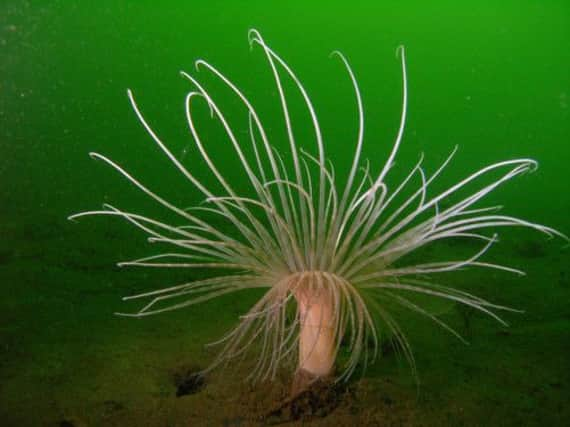Sealife off Scottish coast facing extinction threat


The Marine Conservation Society in Scotland (MCS) urged the Scottish Government to push forward with 33 proposed marine protected areas (MPAs) to safeguard internationally significant populations of creatures from the threat caused by fishing and other human activity.
Key species at risk include what the environment secretary Richard Lochhead recently described as “possibly the world’s largest colony” of rare flame shell clams in Loch Alsh, one of the areas which the MCS wants to be included in the conservation network.
Advertisement
Hide AdAdvertisement
Hide AdOther internationally significant marine areas include those inhabited by rare fireworks anemones to coral gardens.
Calum Duncan, MCS programme manager, is today due to present the minister with a near-4,000 signature petition from supporters at the Scottish Parliament to halt “decades of damage” which has ruined habitats and put species under threat. He said: “We urgently need a network of new marine protected areas to help our seas recover.
“Coral gardens, sea lochs, flame shell beds, fireworks anemones, tall sea pen parks and deep-sea sponge fields are just a few Scottish specialities we stand to lose without better protection.”
The Scottish Government’s own conservation experts recommended the creation of 33 MPAs last December to safeguard marine ecosystems.
They include Loch Alsh, where the discovery of 75 hectares of flame shells last year during work to identify possible conservation zones helped the MCS argue the case for the area to be included.
Experts believe it could be the largest colony of flame shells anywhere on the planet.
Concern has grown over whether ministers will include all 33 areas in a public consultation later this year after politicians south of the Border were accused of “floundering” over similar proposals there.
Making the case for swift action, Mr Duncan added: “A network would not only improve the health of the Scottish seabed, but could provide enhanced financial benefits from the enjoyment and use that thriving seas will provide for future generations.”
Advertisement
Hide AdAdvertisement
Hide AdHis call was echoed by the Scottish Seabird Centre, which supports the campaign for a MPA network.
Chief executive officer Tom Brock said: “We fully support the development of a comprehensive network of MPAs around Scotland to help ensure that these unique environments and their stunning marine wildlife are safeguarded.”
Responding to the calls, Mr Lochhead said he was “currently” planning to include all 33 proposed areas in a public consultation due to take place between July and November.